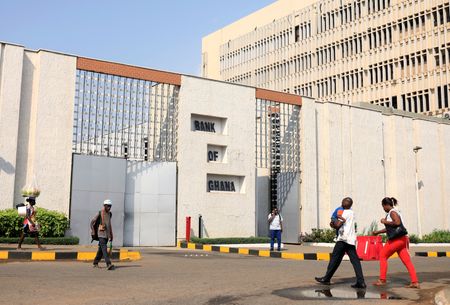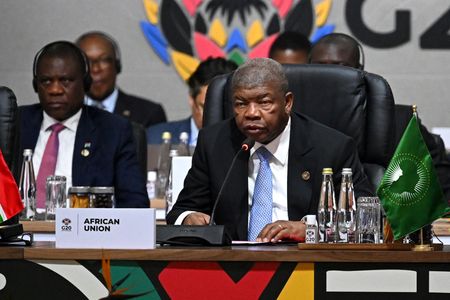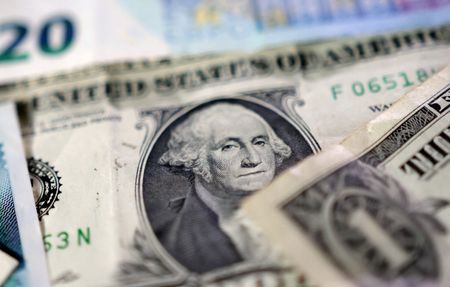By Scott DiSavino
NEW YORK (Reuters) -Oil prices climbed about 1% on Monday on increased bets of a U.S. interest rate cut in December and mounting doubts about whether Russia will get a peace deal with Ukraine that will boost Moscow’s oil exports.
Brent futures rose 81 cents, or 1.3%, to settle at $63.37 a barrel. West Texas Intermediate (WTI) crude gained 78 cents, or 1.3%, to settle at $58.84.
On Friday, both crude benchmarks closed at their lowest levels since October 21.
The U.S. and Ukraine sought to narrow the gaps in a peace plan to end the Russia-Ukraine war after agreeing to modify a U.S. proposal that Kyiv and its European allies viewed as a Kremlin wish list.
Recent price weakness was driven mainly by reported progress in Ukraine–Russia peace negotiations, analysts at energy advisory firm Ritterbusch and Associates said in a note.
“However, we feel that a reduction of more than 5% of risk premium is excessive,” they added, pointing to the potential for the war to drag on, re-injecting geopolitical risk into oil futures.
U.S. sanctions on Russian oil companies Rosneft and Lukoil, which took effect on Friday, have caused friction that would normally boost prices, but the market is preoccupied by the peace talks, said Jorge Montepeque, managing director at Onyx Capital.
Russian state oil and gas revenue could fall in November by around 35% year-on-year to 520 billion roubles ($6.59 billion), owing to cheaper oil and a stronger rouble, Reuters calculations showed on Monday.
European Council President Antonio Costa hailed the “new momentum” in negotiations to end the war in Ukraine and pledged that the European Union will keep supporting Ukraine.
U.S. INTEREST RATES
U.S. Federal Reserve Governor Christopher Waller said available data indicates that the U.S. job market remains weak enough to warrant another quarter-point cut.
Lower rates could boost economic growth and oil demand. Global brokerages remain split on whether the Fed will cut interest rates at its December meeting after last week’s mixed signals on job growth and unemployment.
In Germany, business morale fell unexpectedly in November, a survey showed, as companies grew more pessimistic about chances of economic recovery.
JPMorgan forecast Brent crude at $57 a barrel and WTI at $53 in 2027 while keeping its 2026 estimates unchanged at $58 and $54 respectively.
AROUND THE WORLD
The U.S. formally designated Venezuela’s Cartel de los Soles as a foreign terrorist organization, layering additional terrorism-related sanctions on the group it has said includes President Nicolas Maduro and other high-ranking officials.
U.S. sanctions on Venezuela, a member of the Organization of the Petroleum Exporting Countries (OPEC), help support oil prices by limiting the South American country’s exports.
Separately, U.S. President Donald Trump said he had a “very good” phone call with Chinese President Xi Jinping. The leaders discussed the war in Ukraine, fentanyl trafficking and a deal for farmers. Energy traders see positive discussions between the world’s two biggest economies as supportive of oil demand.
(Reporting by Scott DiSavino in New York and Anna Hirtenstein in London; Additional reporting by Mohi Narayan in New Delhi and Helen Clark in Perth; Editing by David Goodman, Richard Chang and David Gregorio)










